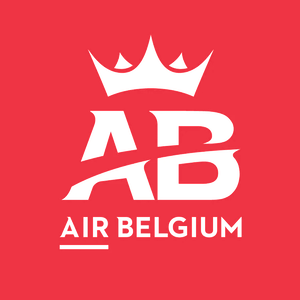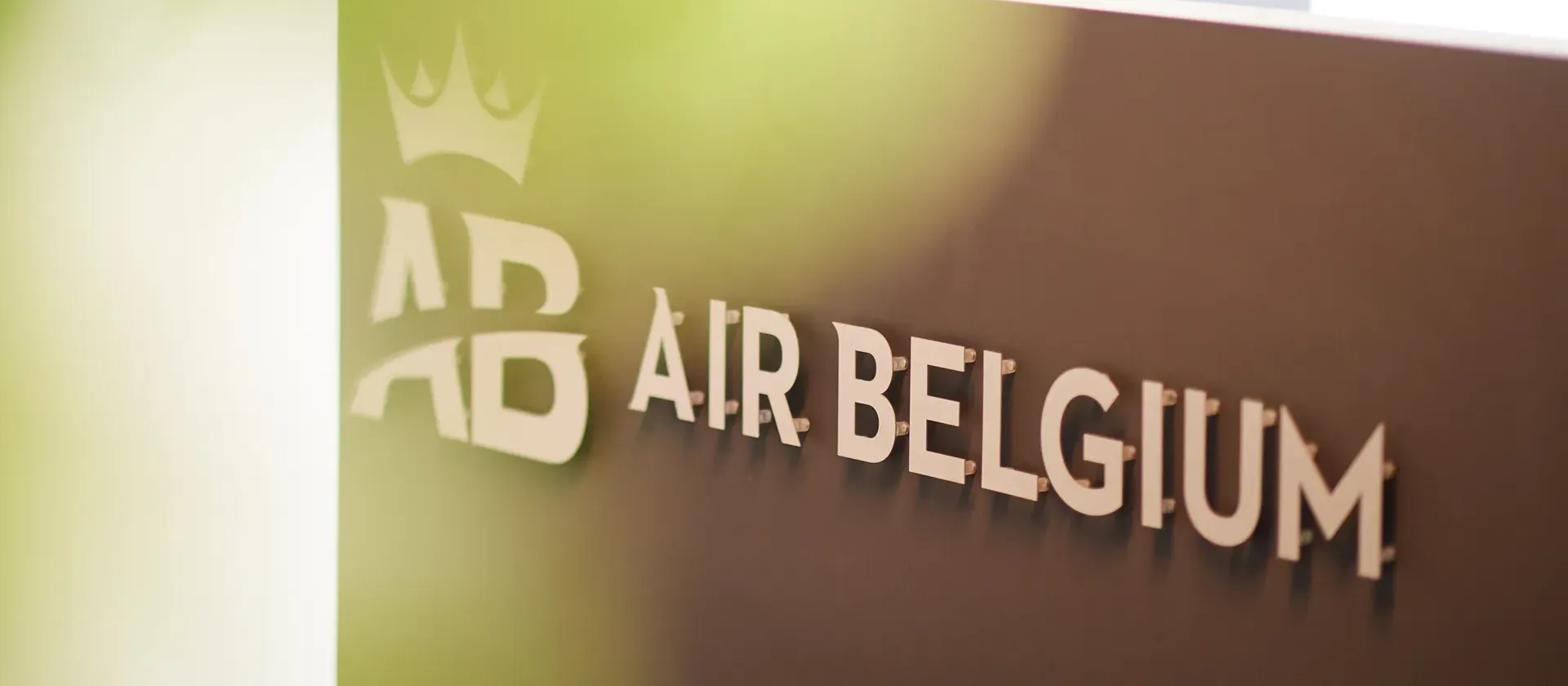Embracing sustainability
In today’s world, sustainability and environmental responsibility are paramount concerns, touching every facet of our lives, including the aviation industry.
Within the dynamic landscape of the international economy and aviation sector, we face pressing global challenges like population growth, climate change, and a growing demand for mobility.
Decarbonizing our operations is not merely an option but an imperative. The aviation industry has set ambitious targets, aiming for net-zero carbon emissions by 2050. Transitioning from traditional fossil fuels to sustainable aviation fuel stands as a cornerstone in achieving this goal.
For Air Belgium, sustainability isn’t just a buzzword; it’s ingrained in our identity. We recognize our responsibility towards the environment and society. As such, being a sustainable and conscientious airline is at the core of who we are.
New generation aircraft with reduced carbon footprint
Investing in the latest-generation aircraft with reduced carbon footprint has been one of our first actions. We swiftly replaced our older planes with models like the A330-900neo and A330-200ceo, both offering superior flying experiences while offering enhanced environmental and technological features.
These state-of-the-art planes are among the newest to operate under the Belgian flag.
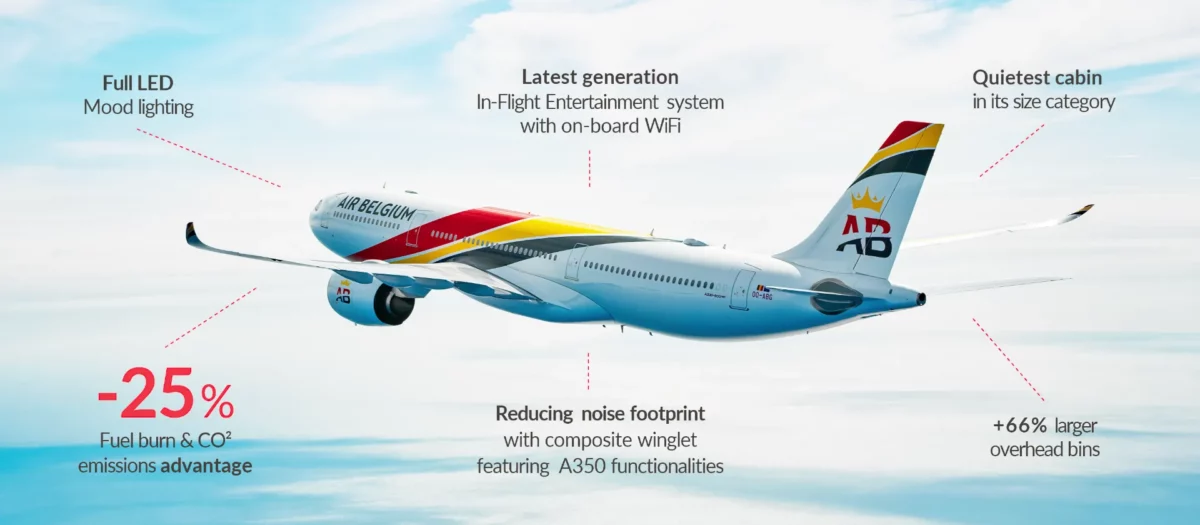
Ecological benefits
Compared to previous-generation aircraft, the Airbus A330-900neo consumes an average of 25% less fuel.
Reduced fuel consumption translates to lower CO2 emissions into the atmosphere – 25% less per passenger. It also exceeds CAEP (Committee on Aviation Environmental Protection) standards with a 27% reduction in nitrogen oxide emissions.
Noise reduction
The A330-900neo is known for its low acoustic impact, boasting the quietest cabin in its category. Its exterior noise footprint is minimized through thoughtful construction material choices.
Air Belgium also operates two A330-200ceo aircraft. These modern planes are recognized for their efficiency and reliability compared to earlier generation aircraft, offering significant advantages.
Few aircraft of comparable size can compete with the A330-200ceo. This latest-generation aircraft features unique versatility, a comfortable and quiet cabin, resulting in reduced noise footprint.
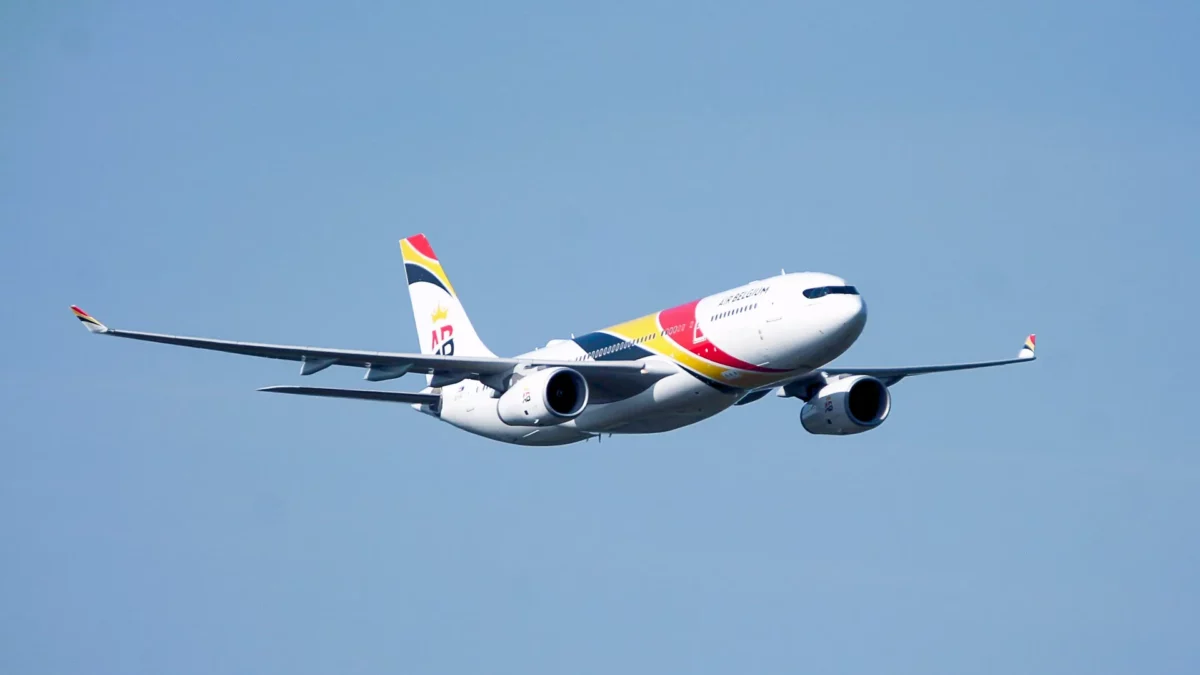
This twin-engine wide-body also benefits from weight reduction, leading to an improved maximum take-off weight, a significant advantage in fuel consumption.
Balancing our CO2 emissions
Air Belgium actively participates in the European Union Emissions Trading Scheme (EU ETS) to address and offset its greenhouse gas emissions.
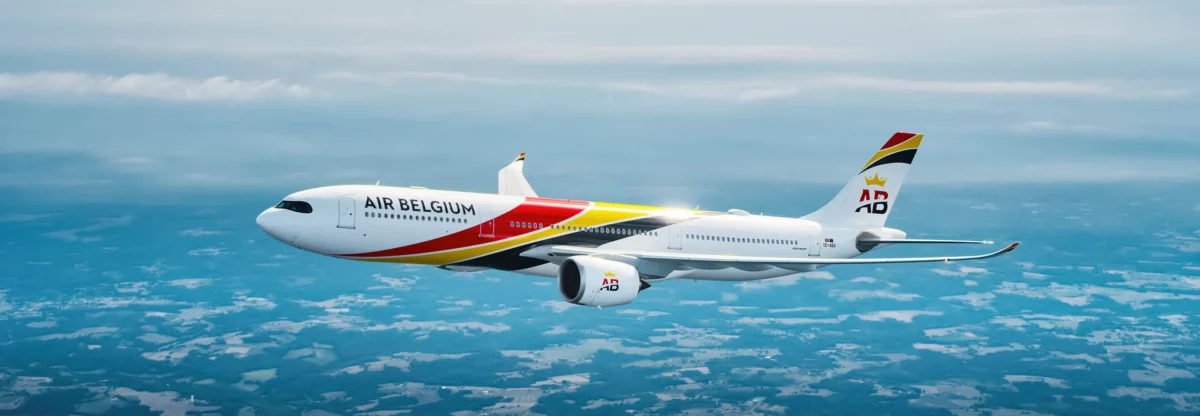
Through this program, the airline purchases emission allowances to balance its carbon footprint. The EU ETS sets a cap on the total greenhouse gas emissions permissible for aircraft operators covered by the system.
This cap is progressively reduced each year in alignment with the EU’s climate goals, ensuring a gradual decrease in emissions over time.
The generated revenue primarily contributes to national budgets, and member states utilize these funds to support investments in renewable energies, enhance energy efficiency and develop low-carbon technologies. These initiatives further contribute to reducing overall emissions and align with Air Belgium’s commitment to environmental responsibility.

Social responsibility
Central to our operations are the dedicated individuals who comprise our team. Their contributions are integral and shape the quality of our services.
We prioritize the well-being of our team members, recognizing it as fundamental to our success. Creating a nurturing and supportive work environment is paramount to us. In tandem with our teams, we champion diversity and inclusivity. This commitment to fostering a culture of openness ensures smooth and positive interactions for all our clients.
